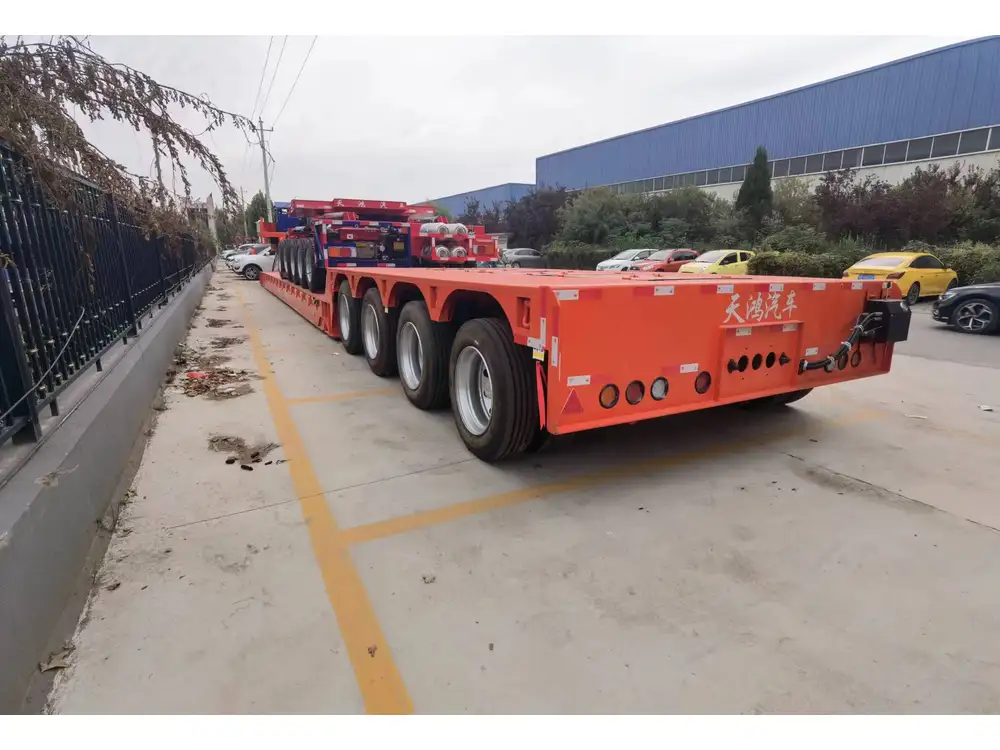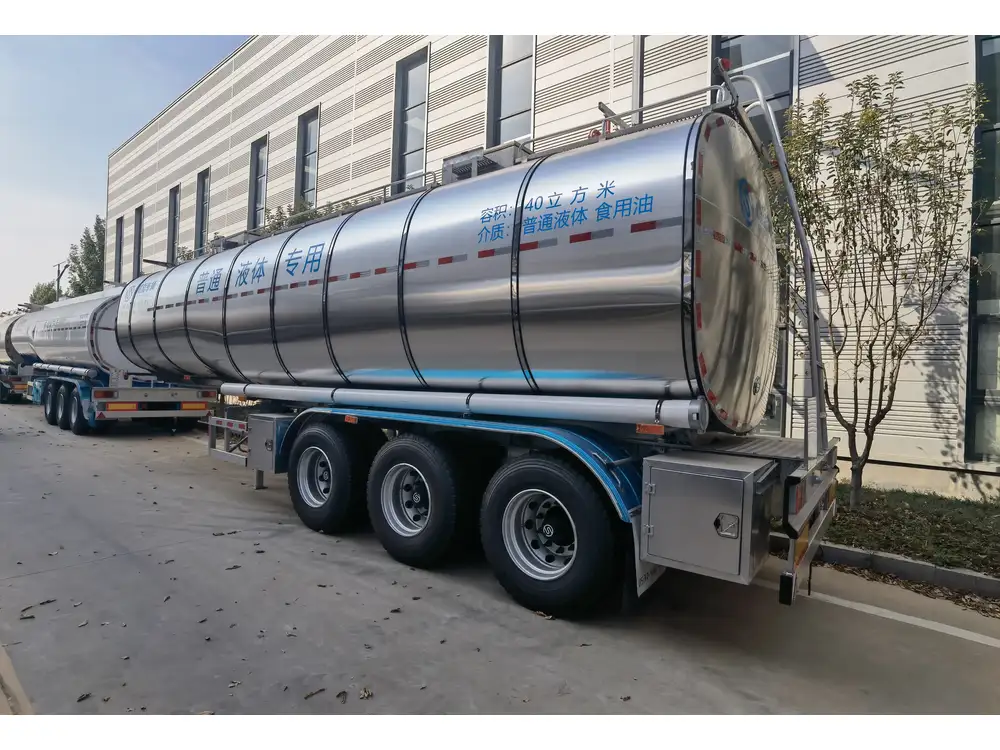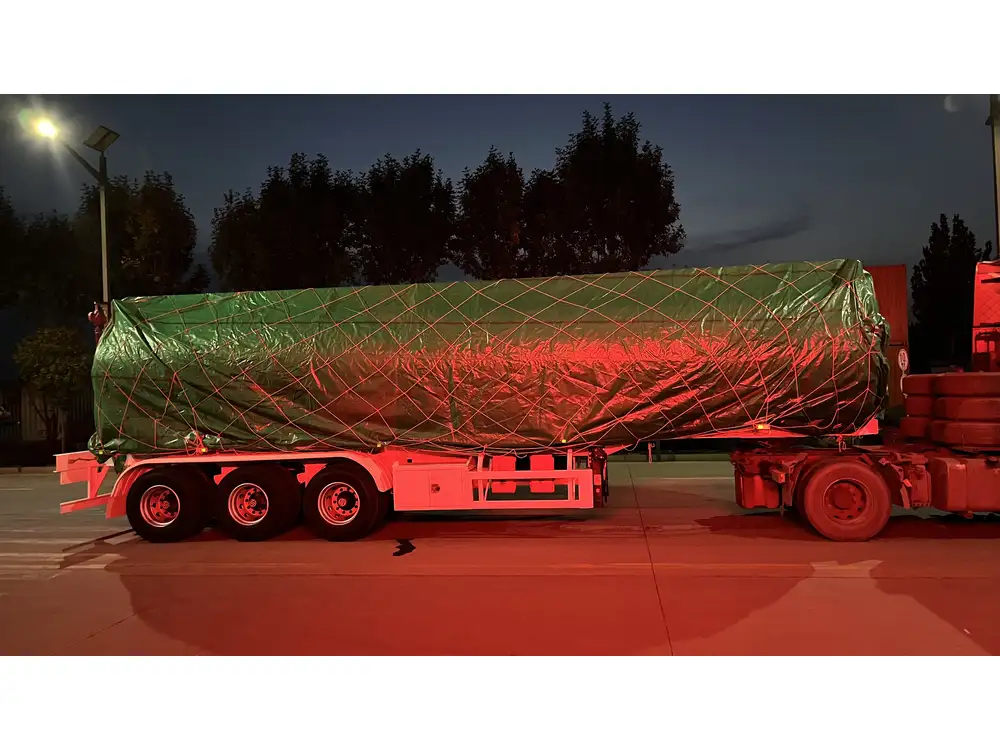Keeping your semi-trailer clean is more than just a cosmetic concern; it impacts safety, maintenance, and overall efficiency. Given the sheer size and complexity of these vehicles, finding the right place to wash your semi-trailer can be daunting. In this guide, we will explore numerous options for washing semi-trailers, highlighting their benefits, drawbacks, and the best situations for each.
1. The Importance of Regular Cleaning
1.1 Why Clean Your Semi-Trailer?
Regular cleaning of your semi-trailer helps in:
- Preventing corrosion: Dirt and road salt can lead to rust formation.
- Improving fuel efficiency: A clean truck has less wind resistance, providing better mileage.
- Enhancing safety: Clean lights and mirrors improve visibility.
- Maintaining good aesthetics: A clean trailer reflects professionalism.

1.2 Common Issues Faced by Fleet Owners
Fleet owners may face several challenges regarding trailer cleanliness:
- Limited Access: Not all wash stations can handle the size.
- Environmental Concerns: Water runoff with cleaning agents can harm the environment.
- Cost Efficiency: Balancing quality and cost is essential.
2. Types of Washing Solutions for Semi-Trailers
2.1 Do-It-Yourself (DIY) Washing
Many fleet owners consider washing trailers themselves. Here’s a breakdown:
| Pros | Cons |
|---|---|
| Cost-effective compared to commercial washes | Time-consuming and labor-intensive |
| Total control over cleaning methods | May require additional equipment (pressure washer, soap) |
| Flexible scheduling | Space constraint might limit effectiveness |

2.1.1 Tools Needed for DIY Washing
To effectively wash a semi-trailer, here’s what you’ll need:
- High-pressure washer: Essential for removing stubborn grime.
- Non-corrosive cleaning agents: Eco-friendly soaps to prevent environmental damage.
- Long-handled brushes: For reaching high areas and tight corners.
- Water Source: Sufficient water supply is crucial.
2.2 Professional Wash Stations
Professional wash stations offer a wide range of services tailored to semi-trailers. Here’s a detailed overview:
2.2.1 Advantages of Professional Wash Stations
| Category | Details |
|---|---|
| Speed | Professional services can rapidly clean vast fleet quantities, reducing downtime. |
| Specialized Equipment | High-powered washers and specialized tools ensure thorough cleaning, removing tough road grime and buildup. |
| Environmental Compliance | Many professional washes are designed to treat runoff properly, adhering to environmental regulations. |
| Extensive Offerings | Some stations provide additional services like waxing, polishing, and undercarriage cleaning, ensuring a comprehensive maintenance routine. |

2.3 Mobile Wash Services
Mobile wash services bring the cleaning directly to your fleet.
2.3.1 Benefits of Mobile Services
| Aspect | Benefits |
|---|---|
| Convenience | Service done on-site, enabling easy scheduling without disrupting your operations. |
| Customization | Mobile services often offer tailored cleaning solutions based on fleet requirements, enhancing satisfaction. |
| Cost-Effectiveness | Fewer logistical costs since no transport is required, translating to savings on both time and finances. |
2.4 Self-Serve Wash Facilities
Self-serve wash facilities cater to those who prefer a DIY approach without the full commitment of equipment acquisition.

2.4.1 Advantages of Self-Serve Facilities
| Feature | Benefits |
|---|---|
| Cost | Typically lower fees compared to full-service washes, making it budget-friendly. |
| Availability | Open for longer hours, catering to varied schedules of fleet operators. |
| Control | You can pace your wash according to your needs without being rushed. |
3. Evaluating Your Options: What to Consider
3.1 Location and Accessibility
The accessibility of wash stations can significantly alter the choice. Consider:
- Proximity to your base of operations.
- Space availability for maneuvering large vehicles.
- Local traffic conditions that might delay access.

3.2 Cost Analysis
Reviewing the cost-effectiveness of potential washing options is essential:
- DIY Costs: Initial equipment costs versus ongoing water and cleaning agent expenses.
- Professional Costs: Pricing structures (per wash, monthly subscription).
- Mobile Services: Evaluate per-service fees against potential downtime savings.
3.3 Environmental Impact
Modern regulations present tighter environmental controls, emphasizing the need for eco-friendly cleaning solutions:
- Choose washes with water reclamation systems.
- Ensure that soaps and chemicals are biodegradable to reduce ecological footprints.
3.4 Cleanup Quality
Investigating the effectiveness and thoroughness of wash stations is paramount:
- Look for customer reviews or testimonials.
- Check if the facility uses industry-standard cleaning agents and methods.
- Inspect before and after images to gauge quality.

4. Additional Tips for Maintaining Trailer Cleanliness
- Regular Inspections: Keep an eye on buildup, especially during winter months.
- Use a Wax Coating: Waxing not only protects the paint but makes future cleaning easier.
- Employ a Maintenance Schedule: Setting routine cleaning tasks in sync with transport cycles can increase efficiency.
- Train Drivers: Encourage drivers to maintain cleanliness, such as wiping down areas and cleaning within.
5. Recommended Locations and Resources
Here’s a table summarizing some common commercial wash locations ideal for semi-trailers:
| Wash Type | Examples | Location Recommendations |
|---|---|---|
| Professional Wash Stations | Blue Beacon Truck Wash, Petro Stopping Centers | Major highways, truck stops, or urban fleet hubs. |
| Mobile Services | TruGreen Truck Wash, Fleetwash | On-site service to fleets on the go. |
| Self-Serve Facilities | Soapy Joe’s, local truck wash services | Locations near industrial zones or transport companies. |
6. Conclusion: Making the Right Choice
Choosing where to wash a semi-trailer involves careful consideration of several factors, including cost, convenience, and effectiveness. Fleet owners must weigh the benefits of DIY methods against professional washes and mobile services, and determine the optimal strategy based on their unique needs and operational demands.
By prioritizing cleanliness and regular maintenance, not only can you prolong the lifespan of your semi-trailer, but you can also optimize your fleet’s performance, safety, and fuel efficiency. With a comprehensive understanding of your options and a sustainable approach to washing, your fleet will continue to reflect excellence both on the road and at rest.



